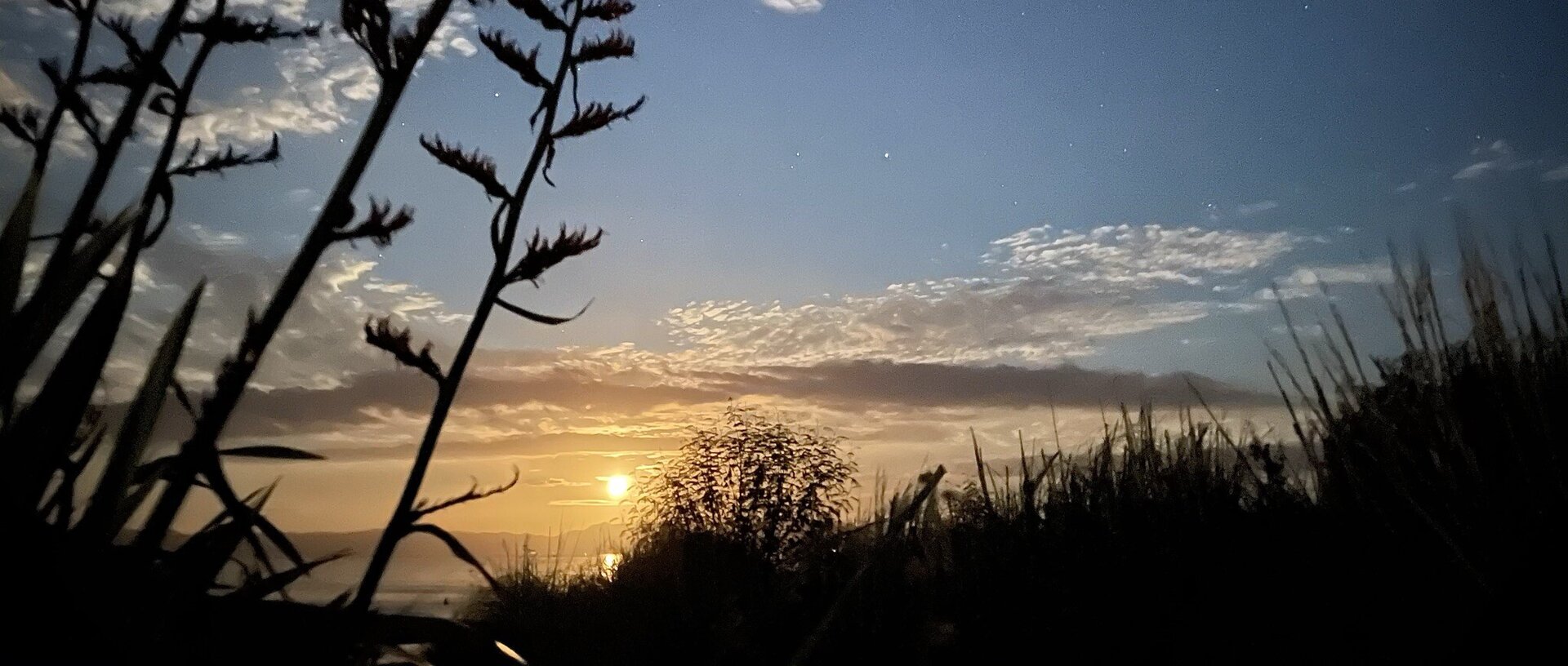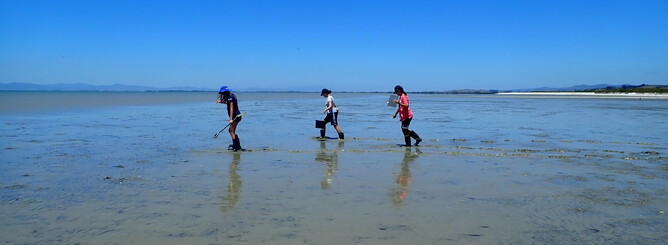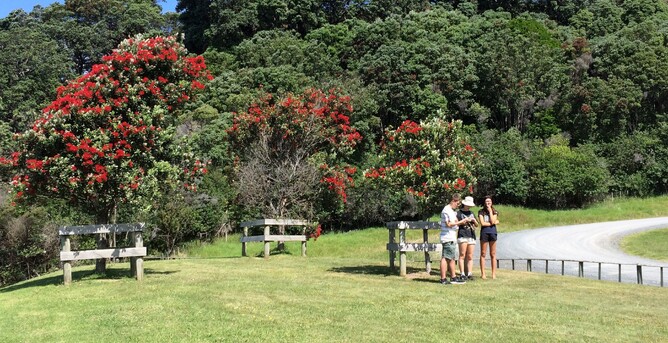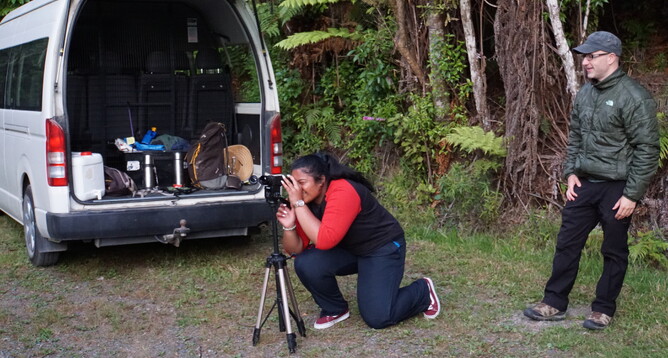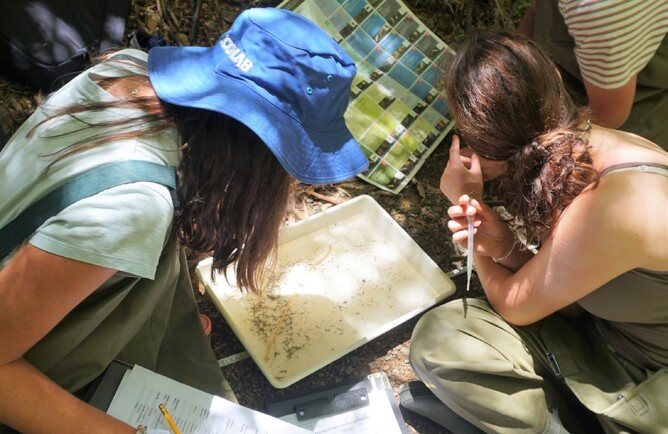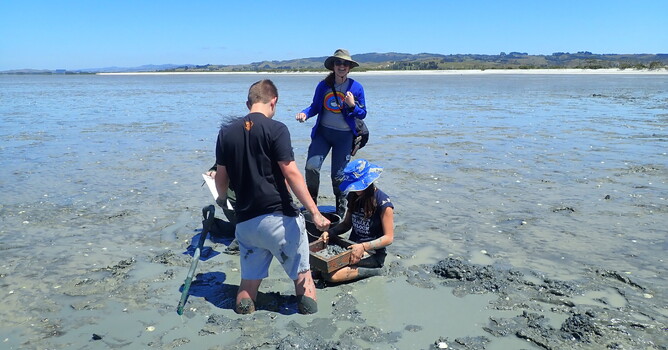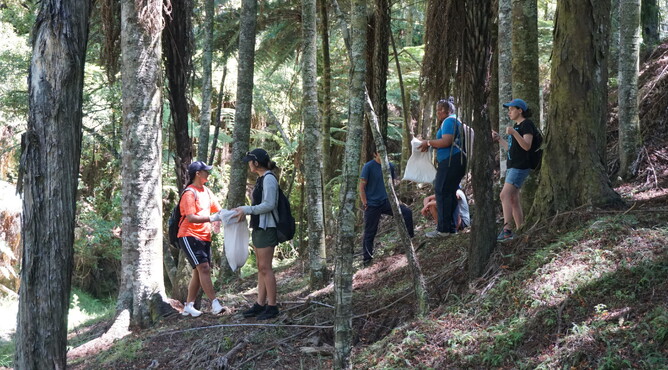EcoQuest enjoyed the last working week of 2020 hosting our field ecology program for senior high school students. Our first Experience Ecology in Action summer program brought year 12 and 13 students from three schools (Manurewa College, Hauraki Plains and St. Pauls Collegiate) to our field centre in Whakatiwai.
It was a huge success, and both students and lecturers thoroughly enjoyed the week. It was great to have our field centre filled with curious minds once again.
The students loved our place-based focused learning about the Wharekawa Coast and practicing field skills.
An Action Packed Week!
Following an afternoon of skills training to enable students to be confident with field work (including navigating using compass, map & GPS), each day of the programme focused on a different organism or system.
Pekapeka - endemic long-tailed bats
This included discussions on the natural history and conservation challenges of our native bats. Students were able to practice with all of the field equipment utilised in bat research including handheld monitors, Automatic Bat Monitors (ABM’s), spectrogram data processing, radio-tracking activities and set up of harp traps. At night we visited the Hūnua ranges to find bats using bat detectors and a thermal camera.
The little things that run the world: Invertebrates as indicators
Here we discussed the vital roles insects play as a resource of food, pollination, and as decomposers. We explored the interesting habits of a variety of native insects, and covered conservation issues. We explained how our endemic invertebrates act as environmental indicators for many restoration projects. We then visited a local farm that has a stream with a forested riparian running through the section, where we practiced kick-net samples to calculate the MCI (macro-invertebrate community index) for water quality, collected leaf litter samples to process in the lab using Berlese Funnels, set up a light trap and came back at night to view the nocturnal wildlife. For the remainder of the week students had the opportunity to view collected specimens using microscopes.
In-shore wetlands, shore-bird conservation and migration, benthic fauna and climate change
The fourth day focused on in-shore wetlands, shore-bird conservation and migration, benthic fauna and climate change. From bird hides we observed the diversity of migratory shorebirds that spend their summer on the Pūkorokoro Miranda coast. We visited the Pūkorokoro Miranda Shorebird Centre to learn about the role in assisting global protection of migratory species. We examined the local food source for our wading birds by sampling benthic fauna and discussed links between climate change, inshore- and coastal ecosystems.
Bringing students and ecologists together was an energising end to the year for everyone. In just a week we were able to explore the biodiversity and issues of this area in detail.
It is always a privilege to share the taonga of our place with others, and the students left feeling connected to the Wharekawa Coast, understanding the importance of native ecosystems, and empowered as leaders of environmental protection.
We would like to thank the Pūhoro STEM Academy for enabling some our tauira to attend. It was the perfect way to end the year at EcoQuest.
Our next science taster course is scheduled for 13th to 17th December 2021.
